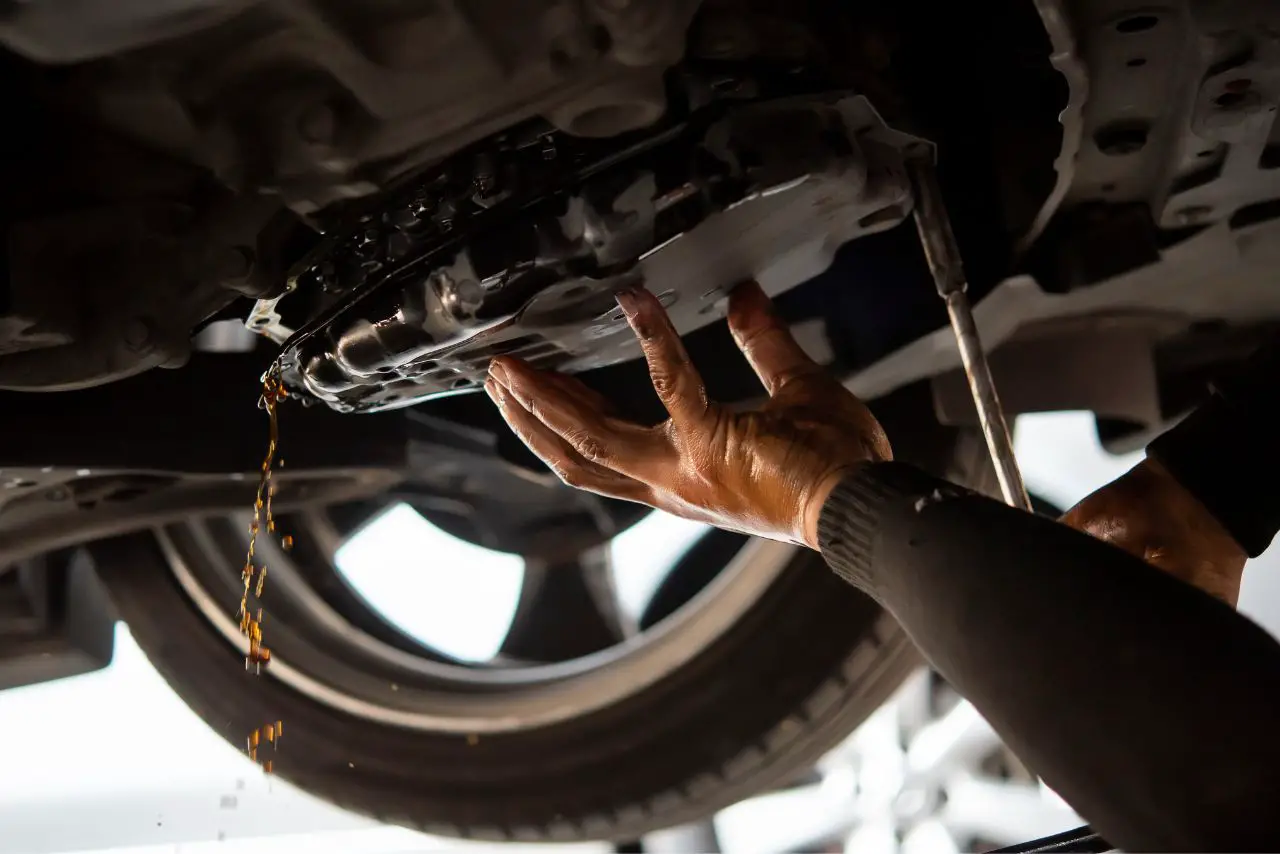As a car owner, you may have experienced a few issues with your vehicle that you cannot explain.
One common question that car owners ask is, “Can a bad alternator cause transmission problems?”
In this blog post, we will explore this question and provide you with an informed answer.
Can A Bad Alternator Cause Transmission Problems? When your vehicle’s alternator is not functioning properly, it can lead to a low voltage in the battery.
This, in turn, can cause the computer to improperly shift the transmission gears, resulting in drive symptoms such as stalling, surges, and rough shifts.
In some cases, the engine and transmission can even go into a failure mode, which can cause a variety of additional drive symptoms.
What Is An Alternator And How Does It Work?
An alternator is an essential component of a vehicle’s electrical system. It is responsible for generating power to charge the battery and power the car’s electrical systems.
An alternator works by converting mechanical energy into electrical energy. When the engine is running, the alternator spins, and a magnetic field is created in the stator.
This magnetic field induces an electrical current in the rotor, which is connected to the engine’s crankshaft.
The current produced by the alternator is then rectified and regulated to provide the correct voltage and current to the battery and electrical systems.
The alternator is an essential part of a vehicle’s operation, and when it fails, it can lead to a multitude of problems.
Can A Bad Alternator Cause Transmission Problems?
Yes, it’s possible for a bad alternator to cause transmission problems.
The alternator is responsible for charging the battery and powering the electrical components of your car, including the transmission.
Without a properly functioning alternator, the transmission may not receive enough power to operate correctly.
Symptoms of a bad alternator can include dimming headlights, strange noises, and a battery warning light on your dashboard.
If left unchecked, a bad alternator can cause serious damage to your transmission and other electrical components of your vehicle.
The Relationship Between The Alternator And The Transmission:
The alternator and transmission in a vehicle are two important components that work together to ensure the smooth functioning of the engine.
The alternator is responsible for generating electricity to power the electrical components in the car, while the transmission is responsible for transferring power from the engine to the wheels.
The relationship between the two is simple: the alternator relies on the engine to turn, and the engine relies on the transmission to transfer power to the wheels.
If either one of these components is faulty, it can cause serious problems for the car.
Therefore, it is crucial to ensure that both the alternator and transmission are in good working order.
How A Bad Alternator Can Cause Transmission Problems?
If you’re experiencing transmission problems, there’s a chance that your alternator could be the culprit.
The alternator is responsible for keeping your car battery charged, which in turn powers the electrical components of your vehicle.
A failing alternator can lead to a low battery charge, causing the transmission to behave erratically.
For example, the transmission may not shift gears properly or may become stuck in a particular gear.
Additionally, a bad alternator can cause your car’s engine to stall, which can also lead to transmission issues.
Symptoms Of A Bad Alternator And Transmission Problems:
A bad alternator can cause a variety of symptoms, such as dimming or flickering headlights, a weak battery, and difficulty starting the engine.
On the other hand, transmission problems can manifest as slipping gears, erratic shifting, and whining noises while driving.
These problems can be caused by a variety of factors, including low transmission fluid levels, worn clutch plates, or faulty sensors.
What Problems Can A Bad Alternator Cause?
Here’s a comprehensive list of bad alternator transmission problems that you should be aware of:
1. Electrical Issues:
One of the most common problems associated with a bad alternator is a range of electrical issues. This can include dimming headlights, flickering dashboard lights, and a weak battery.
2. Transmission Slipping:
A bad alternator can cause your transmission to slip, which can result in a host of issues. This can include rough shifting, delayed acceleration, and poor performance.
3. Stalling:
A bad alternator can cause your engine to stall, which can be dangerous if you’re driving at high speeds. This can also cause damage to your transmission and other components.
4. Overheating:
A bad alternator can cause your engine to overheat, which can be a serious problem. This can cause your transmission fluid to break down, leading to transmission failure.
5. Grinding or Whining Noises:
A bad alternator can cause grinding or whining noises in your transmission. This can be a sign of serious damage and should be addressed immediately.
6. Reduced Fuel Efficiency:
A bad alternator can cause your fuel efficiency to drop, which can be costly over time. This can be caused by a range of issues, including increased resistance in your electrical system.
7. Battery Drain:
A bad alternator can drain your battery, which can leave you stranded. This can also cause damage to your transmission and other components.
8. Hard Starting:
A bad alternator can make it difficult to start your engine, which can be frustrating. This can also cause damage to your transmission and other components.
9. Check Engine Light:
A bad alternator can cause your check engine light to come on, which can be a sign of serious problems. This can also cause damage to your transmission and other components.
10. Inconsistent Performance:
A bad alternator can cause your engine and transmission to perform inconsistently, which can be frustrating and dangerous. This can also cause damage to your transmission and other components.
How To Diagnose And Fix Alternator And Transmission Problems?
1. Alternator Problems:
- Check the battery: A weak battery may cause the alternator to overwork, leading to early failure.
- Check the warning light: If the alternator warning light on the dashboard is on, it may indicate a problem with the alternator.
- Check the belt: A loose or worn belt can cause the alternator to malfunction.
- Check the voltage: Use a voltmeter to test the alternator’s output voltage. It should be between 13.5 and 14.5 volts.
2. Alternator Fixes:
- Replace the alternator: If the voltage output is low, the alternator may need to be replaced.
- Tighten or replace the belt: If the belt is loose or worn, tighten or replace it.
- Clean or replace the battery terminals: Corrosion on the battery terminals can cause the alternator to malfunction.
3. Transmission Problems:
- Check the fluid: Low or dirty transmission fluid can cause shifting problems.
- Check for noises: Grinding, whining or clunking noises may indicate a transmission problem.
- Check for slipping: If the transmission slips or shifts unexpectedly, it may indicate a problem.
- Check the electronics: Modern transmissions use sensors and electronic components that can fail, causing problems.
4. Transmission Fixes:
- Change the fluid: If the fluid is low or dirty, change it.
- Replace the filter: A clogged filter can cause shifting problems.
- Check and replace electronics: If the sensors or electronic components are faulty, they may need to be replaced.
- Rebuild or replace the transmission: If the transmission has major problems, it may need to be rebuilt or replaced.
Prevention Of Alternator And Transmission Problems:
To prevent alternator problems, it is crucial to keep your car’s battery in good condition. A weak or dead battery can put a strain on the alternator, causing it to malfunction.
Regularly inspecting and replacing worn-out belts and hoses is also crucial in preventing alternator problems.
These components are responsible for driving the alternator, and any damage can lead to malfunction.
When it comes to transmission problems, prevention is key.
Regularly checking and changing the transmission fluid is one of the most crucial preventive maintenance steps you can take.
Over time, the fluid can become dirty and contaminated, causing damage to the transmission.
Can A Bad Battery Mess With Transmission?
The battery in your car is responsible for providing the necessary electrical power to the transmission control module.
Without a properly functioning battery, the transmission may not receive the correct signals, leading to shifting problems, stalling, and other issues.
A bad battery can also cause voltage fluctuations, which can affect the transmission’s performance.
These fluctuations can cause the transmission to shift erratically, or not at all.
In some cases, the transmission may even go into “limp mode,” which is a safety feature designed to protect the transmission from further damage.
Can Low Voltage Affect Transmission?
Low voltage can indeed affect a car’s transmission.
The transmission system is responsible for controlling the power and torque of the vehicle, and low voltage can lead to a decrease in the performance of the transmission.
When the voltage is low, the electrical signals that control the transmission system may not be transmitted correctly, causing the transmission to shift at the wrong time or not at all.
This can lead to rough gear changes, slipping gears, and even complete failure of the transmission system.
It’s important to note that low voltage can be caused by a variety of factors, including a weak battery, faulty alternator, or damaged wiring.
Can A Bad Alternator Cause Your Car To Not Accelerate?
A bad alternator can definitely cause your car to not accelerate. The alternator is one of the most important components of your car’s electrical system.
It charges the battery and powers all of the electrical systems in your vehicle, including the fuel pump and ignition system.
If the alternator is not working properly, it can cause a number of problems, including a loss of power when you try to accelerate.
When the alternator starts to fail, it can cause a number of symptoms that can be confusing to diagnose.
Conclusion: Can A Bad Alternator Cause Transmission Problems?
Can A Bad Alternator Cause Transmission Problems? A bad alternator can indeed cause transmission problems in a vehicle. The alternator is responsible for charging the battery, which in turn powers the transmission system.
If the alternator is not functioning properly, it may fail to provide enough power to the battery, leading to a range of transmission-related issues.
These can include difficulty shifting gears, delayed acceleration, and even complete transmission failure.
It’s important to note that while a bad alternator can be a contributing factor to transmission problems, it’s not always the sole cause.
FAQs
Can a bad alternator cause transmission problems?
Answer: Yes, a bad alternator can cause transmission problems, such as difficulty shifting gears or slipping out of gear.
What are some signs that an alternator might be bad?
Answer: Signs that an alternator might be bad include dim headlights, slow cranking when starting the engine, a dead battery, or strange noises coming from the engine.
What can happen if an alternator is not replaced?
Answer: If an alternator is not replaced, it can lead to a drained battery, difficulty starting the engine, and transmission problems.
How often should an alternator be replaced?
Answer: An alternator should be replaced every 4 to 5 years, depending on the make and model of the vehicle.
How much does it cost to replace an alternator?
Answer: The cost to replace an alternator varies depending on the make and model of the vehicle, but can range from $200 to $600.






Leave a Reply